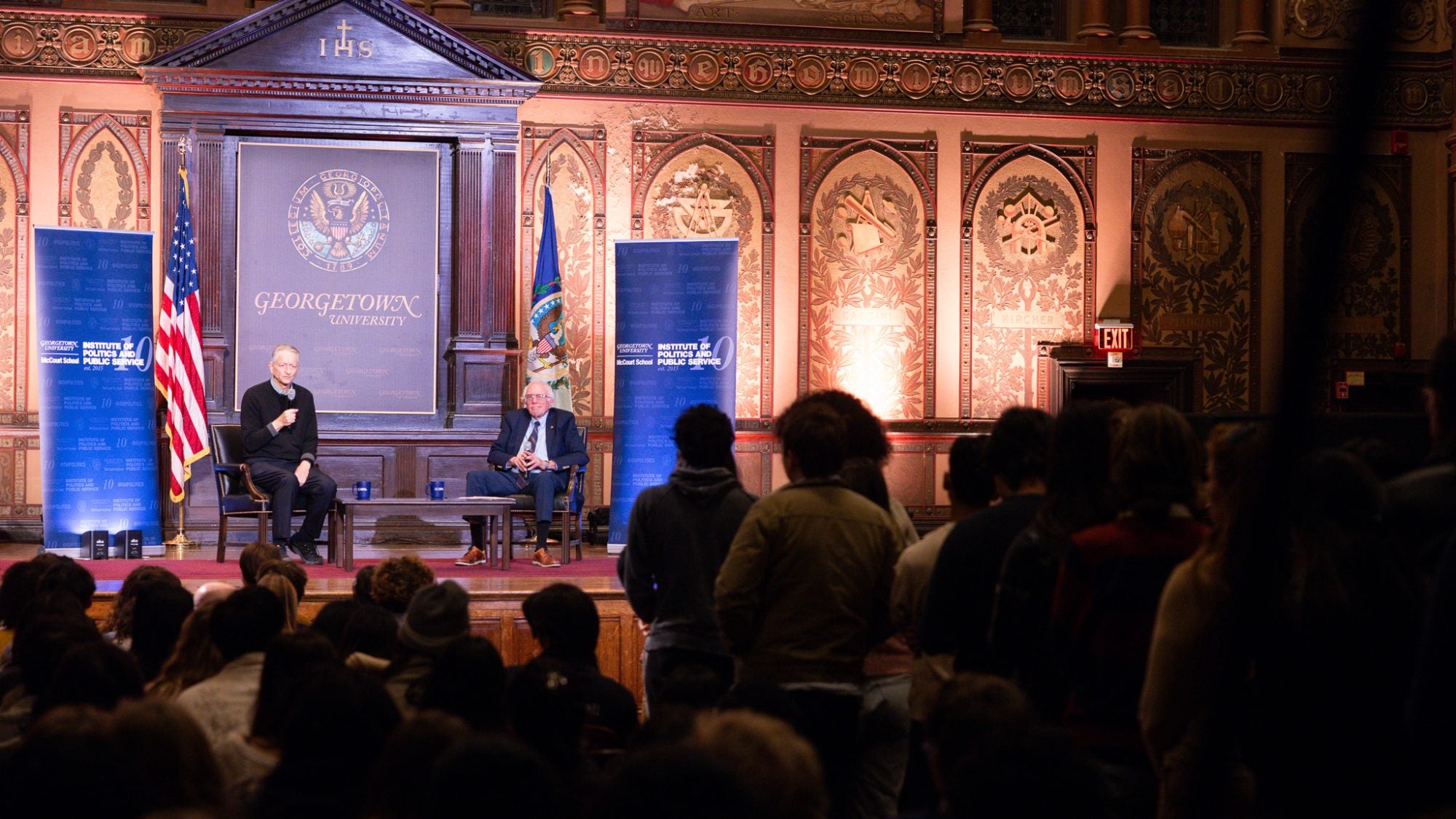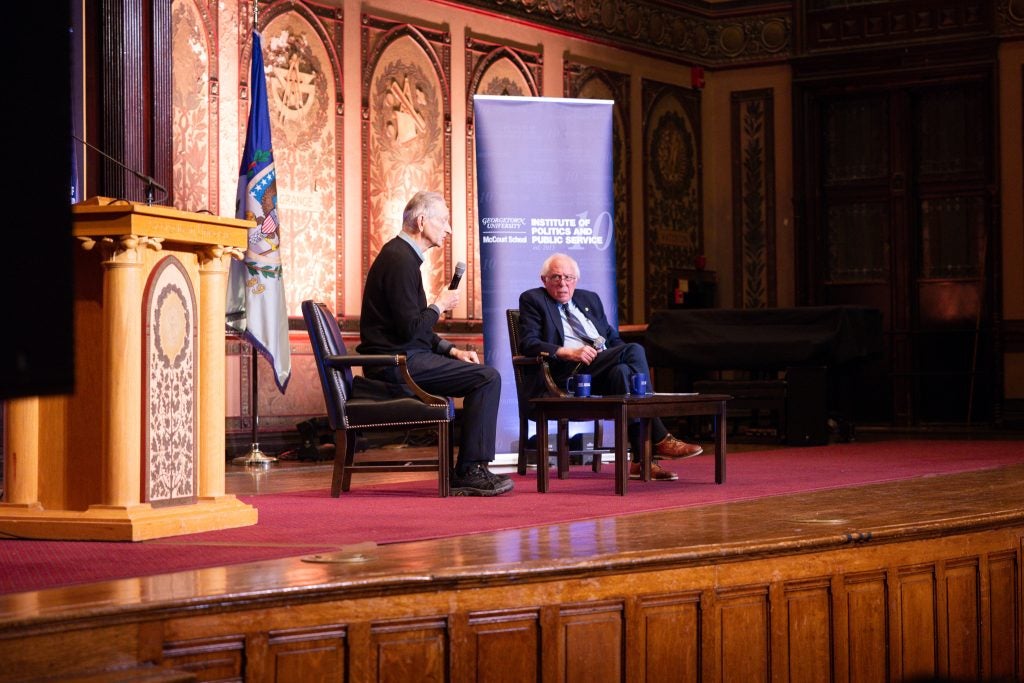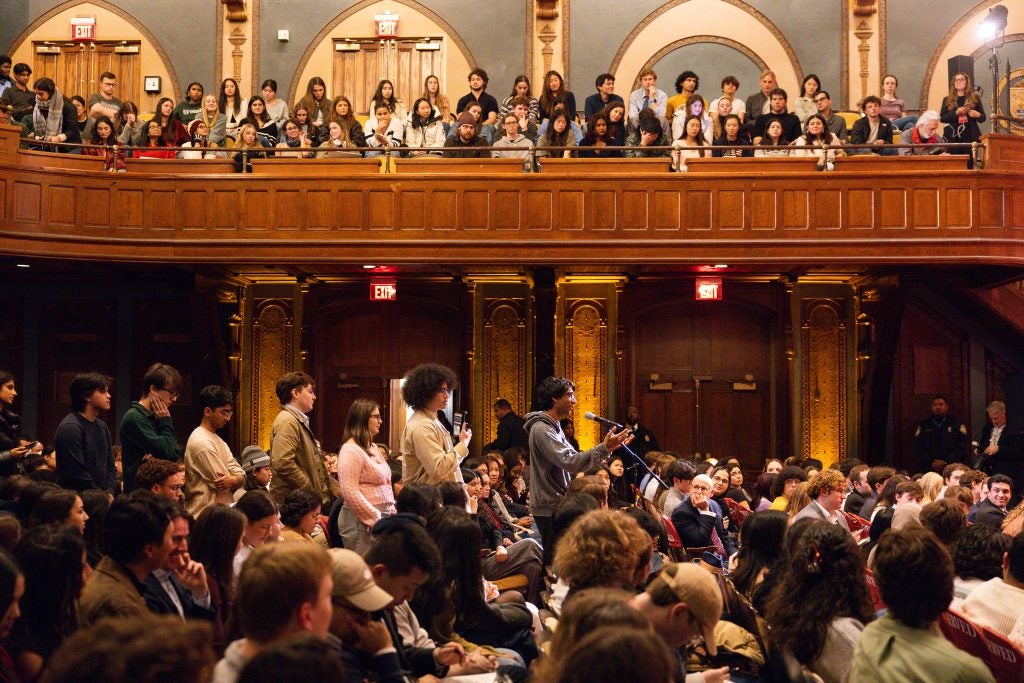On Tuesday, November 19th, members of the Georgetown community filled Gaston Hall for a conversation on one of the defining questions of the next decade: will artificial intelligence strengthen democracy and public service or undermine them?
Georgetown’s Institute of Politics and Public Service hosted a conversation on the promises and perils of AI with Senator Bernie Sanders (I-VT) and Dr. Geoffrey Hinton, a Nobel laureate and the “Godfather of AI.”
Senator Sanders began the conversation by addressing the audience and introducing artificial intelligence as “an issue that is going to impact every one of your lives.”
Hinton, who helped lay the foundations for modern neural networks, argued that today’s AI revolution is fundamentally different from past technological shifts. He referred to earlier eras and how workers displaced by new technologies were typically able to find alternative forms of employment. Noting this difference, Dr. Hinton warned, “if AI gets as smart as people — or smarter—any job they might do can be done by AI.” He drew on call center workers as a clear early example of under-trained and inexpensive labor being replaced by much cheaper and more capable AI systems.
Connecting to the political and economic implications of AI, Sen. Sanders highlighted the role of multi-billionaires like Elon Musk in driving AI investment. “Are these people staying up nights worrying about working-class people and low-income people?” he asked. “Probably not. They want even more wealth and they want even more power.” Sen. Sanders said the fundamental issue in this debate “is not whether AI is good or bad, it is who controls it and who benefits from it.”
After a conversation between Sen. Sanders and Dr. Hinton, the event moved to a Q&A portion. One student asked about the effects of deepfakes and misinformation and how policymakers should address AI-powered misinformation that could worsen polarization and interfere in elections. Dr. Hinton was skeptical that AI systems could reliably detect AI fakes in the long term. Instead, he advocated for source-based solutions, introducing “inoculation” and media literacy efforts that can inform the public by showing labeled fake content ahead of elections.
In closing, Sanders asked students first to raise their hands if they saw AI as a positive force in their own lives, and then if they were worried about its impact. For the former, numerous hands were raised around the room. For the latter, almost every hand in the room went up. Sanders highlighted these results with his experience with working-class audiences across the country who overwhelmingly fear AI as a threat to jobs.
Dr. Hinton ended on a similar note, stressing that while no one can confidently predict the next decade of AI, society still has an important role in shaping its trajectory; a role that will require a better understanding of how the technology works and a political system capable of prioritizing human flourishing over short-term profit.
This article was written by Student Advisory Board Marketing and Communications Chair Gianni Brescio (SFS’28).
Watch the full recording below. View more photos here.


